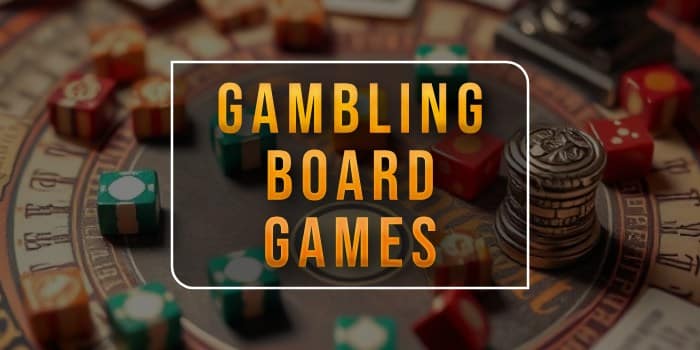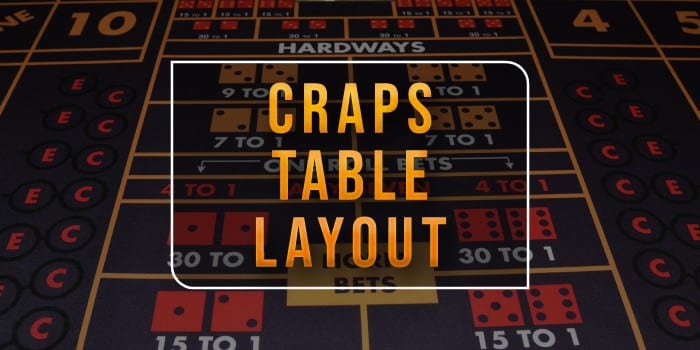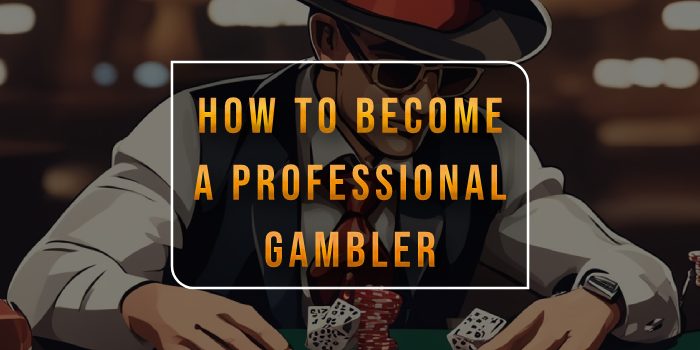- Casino
- By State
- Alabama
- Alaska
- Arizona
- Arkansas
- California
- Colorado
- Connecticut
- Delaware
- Georgia
- Florida
- Hawaii
- Idaho
- Illinois
- Indiana
- Iowa
- Kansas
- Kentucky
- Louisiana
- Maine
- Massachusetts
- Maryland
- Michigan
- Minnesota
- Mississippi
- Missouri
- Montana
- Nebraska
- Nevada
- New Hampshire
- New Jersey
- New Mexico
- New York
- North Carolina
- North Dakota
- Ohio
- Oklahoma
- Oregon
- Pennsylvania
- Rhode Island
- South Carolina
- South Dakota
- Tennessee
- Texas
- Utah
- Vermont
- Virginia
- Washington
- West Virginia
- Wisconsin
- Wyoming
- By State
- Slots
- Poker
- Sports
- Esports
- Home
- Best Seven Card Stud Poker Strategies That Work In 2025
Best Seven Card Stud Poker Strategies That Work In 2025

Before Texas Hold’em took over the United States, Seven Card Stud Poker was pretty much the norm. While there aren’t as many opportunities to play the game today, you can still find it featured in all the most popular card rooms in America, both land-based and online.
As the USA is legalizing its online poker at renewed pace, there are more opportunities to corner 7-card Stud Poker and give it your best shot to outplay the competition. Yet, any ambition you may have of becoming the Daniel Negreanu of Seven Card Stud will have to be paired with a good strategy.
Many players learn and become good at poker through trial and effort and no small amount of research. While Seven Card Stud holds a bit of a niche appeal, it can still be a very captivating game that requires its own poker strategy.
Before Omaha and Hold’em became prominent, 7 Stud was really what everyone wanted to play. There is a growing revival movement today, so it’s a great time to learn more about the game on your own terms before playing real money poker.
7 Card Stud Strategy: Where to Start?
The first thing you need to know about the game is its rules. Understandably, any good strategy will have to do with how well you understand the basic principles of the game, and this is where the rules come in quite handy. So, before you start strategizing about what the pot odds are, you may as well take a good hard look at the rules.
How Does 7 Card Stud Poker Work?
The game naturally shares similarities with Omaha and Hold’em, but it upends the playfield a little and offers some distinct gameplay mechanics that change the way you bet and build hands. Players will generally have five betting rounds which are known as Opening, 4th, 5th, and 6th Street, followed by the River.
Now, in other versions of the game, you have two hole cards that are only visible to you, with the community cards helping you form the rest. Omaha has even more. 7 Card Stud, though, changes that a little. The Opening round awards players 2 Face Down Cards and one Face Up Card.
The next rounds from the 4th to the 6th Street are dealt Face Up, and then the River comes as a Face Down Card. If we had to sum up the rounds in terms of cards dealt in Seven Card Stud, they would look like this:
2x Face Down Cards + 1x Face Up Card
3x Face Up Cards
1x Face Down Card
This produces seven cards with four of them Face Up, and three of them Face Down, hence the name of the game. The difference in a 7 Stud Card game is that positioning doesn’t matter a whole lot. You may or may not be the dealer, and the button may rotate, but then again, it may stay exactly the same.
One unique rule is the burning of cards here. Similar to a game of blackjack, the dealer will have to discard a card after each dealing, but those are cards that you can see, however, not reference later in the game.
Alright, So Who Wins a Seven Card Stud Game?
Now that we have the rules of the game sorted out, you are probably wondering – who wins? Third Street, Fourth Street, and Fifth Street will be rounds of intense action and suspense with players trying to figure out what the other people’s Face Down cards hold.
Generally, though, the ranking of the cards in Stud remains pretty much unchanged. Just like in other poker games, the hierarchy of the cards remains the same. You have your Royal Flush as the #1 hand and then slowly progress to the weaker ones, that is, Straight Flush #2, Four of a Kind #3, and so on.
Just like with Texas Hold’em, to win at Seven Cards Stud, you will combine two of your cards with the community cards. The difference in this version of poker is that everyone gets their own dedicated cards.
How to Place a Bet in 7 Card Stud
One of the reasons why 7 Card Stud gradually subsided as a popular game is the nature of the betting. With a fixed betting limit in all games, many players have started shifting to Texas Hold’em enjoying the more intense pace of play that constantly raised the pot.
Yet, there is comfort in knowing that in a game of 7 Card Study, the pot is always fixed, and you can’t go much higher than that. So, how do you bet? It’s simple, and you start by calling, raising, or folding until the limit is reached. Once you have capped the bets, you may only call or fold. Well, that, and you can naturally check.
Basic 7 Card Stud Strategy
7 Card Stud is making a comeback to the competitive world of online poker. With a distinct variety of options, there is plenty to see and try. Yet, to truly enjoy the game, you may want to consider some strategy tips that allow you to top the leaderboards at poker sites and compete in person against other players at land-based tournaments.
The game essentially boils down to what other versions of poker often come down to – knowledge of your opponents, assessing your hand based on fact, and calling a player’s bluff when you know that your cards are stronger. 7 Card Stud is a game of imperfect information, but there is enough statistically relevant information you can use to pinpoint the odds of success with consistency.
#1 What Cards Should You Play
There are many ways to approach a table of 7 Card Stud. For starters, you ought to know what starting hands are worth keeping. Generally, there is some consensus among players that may not necessarily be true for all situations. However, you will want to keep three of a kind, any big and medium pairs, connectors, or broadway suited cards.
This should give you a fairly good overall variety of options later down the road. Usually, the kicker cards will reveal a lot of information, and since you can see every other player’s own kicker and cards later into the rounds, you will actually be able to collect a lot of information about what is going on.
#2 Learn How to Read Your Opponents
While you won’t be able to play at poker sites and study your opponents as well as at a land-based card room, the ability to read players in a game of Stud is definitely an important skill to have. After all, a lot of the information will be out there, and you can look for some small tell-tale signs that allow you to calibrate your strategy based on how a player reacts.
Even online, certain players, when you have played against them long enough, will have some idiosyncrasies and fall into specific betting patterns that can allow you to predict at least a part of their plays.
Reading opponents at a high level of Seven Card Stud is never too easy, but you can start easy. Focus on players who seem to be a little hectic about their betting. They may be calling a little too often and playing hands that they cannot back up, as is evident by the many shared cards that are visible to all.
You can lean on such players and extract more value, luring them to raise the bets, add to the pot and call you every step of the way. As long as you base your play on cold facts and do not underestimate your opponents, you should be able to really make good progress in your play.
#3 Pay Attention to What Cards Get Burned
Next, you want to make sure that you continue to collect all available information to improve your odds of winning. Therefore, paying attention to the discarded cards will actually give you more information to act on. You can confirm that a player is missing a card or at least narrow down the possibility of that being the case.
The thing here is that once you see a discarded card, you cannot reference it, later on, so you will have to remember what has been already burned. Of course, that is an inherent benefit to your hand and play as well. After all, you are also aiming for a hand, and this hand may or may not be feasible after you see a few cards burned.
You can also use this information to call someone’s bluff. How can they have a given combination if you seem to hold one or two of the cards needed and just saw the others get burned? Whether this is a straight or a flush, control over the hands on the table comes easy to Stud players because they are particularly vigilant.
A novice player will often fail to or forget that bluffing in Seven Stud may be a little ambitious as a lot of the cards are actually down.
#4 Play Your Pocket Pairs and Trips
Forget about chicanery, and focus on playing strong hands as you should. 7 Stud Poker invites you to play three of a kind and pocket pairs to their fullest potential without trying to muck up their value by overplaying your hand or playing it too timidly.
There is just the right amount of self-assuredness you ought to display, but generally, these two combinations are considered very strong openers in Seven Card Stud, and you ought to make sure that you are playing them in a way that extracts full value.
Of course, when all other players can see that you probably have three cards or a pair, things do get a little hairier, but a good player knows that Stud games aren’t about bluffing. They are about your ability to call the odds and gradually push your opponents into reaching the betting limit so that you can claim a better pot.
Each player has a playstyle, naturally, but no semi-advanced 7 Card Poker aficionado would miss out on a good trip or a pair, that’s for sure. Essentially, you don’t want to hide your hand or feign weakness because 7 Stud is about collecting and acting on information more so than speculation as in some other versions of poker.
#5 Read the Table
A bit of a self-evident piece of advice, reading the table is crucial to making it any far in Seven Card Stud. The depth of play will always vary, but you generally want to make sure you are playing in the optimal possible way. Put another way, you want to be paying attention.
Pay attention to the discarded cards and the ones that are already showing. What is your opponent going for? Big pairs or full house, a flush, or just a bluff? There are many variables that are a given in any poker game, and with so much information revealed, 7 Card Stud may feel a little more challenging at first.
However, players are actually at an advantage here because they can get so much more information out of each call, bet, and face-up card. That is not to say that you will not have some blind spots because the game is, after all, based on some hidden variables.
Nevertheless, you have plenty to go on, and as your experience and understanding of the game improve, so should your ability to spot when an opponent has a decent card or not.
To Bluff or Not to Bluff in Seven Cards Stud?
The concept of bluffing is not new to poker. In fact, every popular culture reference to poker comes down to the protagonist playing a clutch hand against a villain. Yet, the concept of bluffing, while clearly applicable to poker, is one that should be taken with a grain of salt. You can only bluff when you have leverage.
Seven Card Studs does away with a lot of the unknowns and leaves players almost fully exposed to others. Yet, you can still bluff with some degree of success. If you know, for example, that no Aces have been burned, and your kicker is an Ace, you already have a lot of leverage. However, if none of your hole cards is an Ace and your opponents have Face Up Aces, you may be operating in the blind territory.
When trying to bluff a pocket pair, you ought to consider if the other player has a straight or something that can take you out. There is also the type of players to consider. Some will not cave in easily to bluffs, but others might.
Even with bluffing as a viable strategy, you want to get the full value of your hand, so focus on making sure that however you approach any situation, you have the right cards to back it up. It’s really not worth bluffing if you are holding to dear life and betting on the other player to a cave – they might not.
Seven Card Stud Strategy for Beginners
Suppose you are new to the game of Seven Card Stud, welcome! You are about to embark on one of the most thrilling journeys in poker, where the luck of the draw does play a role, but your ability to leverage your hand is what will ultimately make the difference between success and failure.
A new player should always focus on finding out more about the game, but there are some stratagems that you can incorporate in those initial stages of play that will help you do a little better, whether you are playing at sites or at land-based casinos.
For starters, you will want to be careful with your starting hands. Don’t go on “limping” or feeling pressured to respond to bets by raising or calling. Seven Card Stud is a little more conservative, so there is no obligation for you to make obligatory wagers, as is the case in other variants of poker.
Start developing awareness about your opponents and what cards are available. Make sure to consistently follow and memorize what cards are being discarded as they will carry as much weight as the ones that are played face-up by players.
Paying attention to those cards is great, but you will also have to remember them. If you want to really make a difference to your play, you ought to know what each mucked or discarded card in the past has been. That way, you can call bluffs, spot weaknesses, and act on your own cards knowing whether a hand is coming or not.
Another tip to consider is playing your high card hands without fear. Many players get hungover whether a hand is the best out there. It doesn’t matter. All that matters is if your hand is the best that anyone can put together this round. The better your cards, the better your chance of success naturally is.
Last but not least, you ought to bluff – if you spot something that your opponent is missing, just go in and leverage that weakness to your advantage.
Does Strategy Change in Different Rounds?
Now, it’s commonly agreed-upon that as you advance through the rounds, that is, Third, Fourth, and Fifth Street, you collect more information. Your Seven Card Poker strategy will possibly change a little, but that change will be expressed as to how far you are willing to push your cards. You will have a fairly free hand to do so before Sixth Street, which is the Showdown when all hands are displayed.
In general, the only adjustments you need to make as the betting rounds progress is to see if your cards actually put you in a good position in relation to what your opponents are holding. The table will provide a lot of information to make these informed decisions.
FAQ
Can I play in Seven Card Stud tournaments?
Yes, Seven Card Stud has a vibrant community online and in-person, and you will find many opportunities to play competitively if you want to.
Is 7 Card Stud Even popular?
Very. Even though Texas Hold’em and Omaha are all the rage these days, Seven Card Stud is often referred to as the “Cadillac” of poker, and as interest for poker in general increases, so does interest in some of the original versions of the game.
What’s a muck card in Seven Card Poker?
A muck card is a card that you “burn” or discard after a dealing round. The card is presented face-up, so it serves to inform player decisions further.
How many players can play a 7 Card Stud Game?
A game of Stud poker can be played with anything from 2 to 8 players.
Is there a limit on the pot in 7 Card Stud?
Yes. The pot limit is usually anything between $4-$6, depending on the table you are sitting at. You don’t have to raise double from $4 to $6, though. If you are raising from $4, the maximum amount you raise is $6. Other versions of the game usually expect you to raise double.
What’s the difference between Seven Card Stud and other versions?
In 7 Card Stud, you have no community cards. These cards are given to each player separately, and while everyone is aware of what they are, other players cannot use them.
Is 7 Card Stud a Game of Skill?
Yes, Seven Card is a game of skill. While a lot of information is readily available, you will still need to demonstrate superb skills and understanding of the game to make the best decisions.
Do You Bluff in Seven Card Stud Poker?
Yes, you can absolutely bluff. Just like in any other version of poker, the game offers imperfect information, which means that there is some wiggle room to lean on more hesitant opponents, which you should be doing to give yourself the best chances of success.
Related Topics:
After finishing her master's in publishing and writing, Melanie began her career as an online editor for a large gaming blog and has now transitioned over towards the iGaming industry. She helps to ensure that our news pieces are written to the highest standard possible under the guidance of senior management.
Must Read
Legal
November 17, 2019
Philippine Gaming Operators Involved in Prostitution Ring
Casino
October 7, 2019
Haven Gaming to Build Danville Casino in IL
Casino
October 6, 2019
MGM To Pay $735M as Part of Settlement for Las Vegas Shooting
Casino
September 28, 2019
Swiss Casinos Group Partners with Playtech
Sports
September 27, 2019
Mobile Sports Betting Finally Coming to Indiana
More Articles















December 3, 2024
Boxers Who Started Late and Became Champions

November 19, 2024
Best Gambling Board Games

October 25, 2024
Top 20 Books About Gambling

October 23, 2024
Craps Table Layout

Casino
October 21, 2024
Megabucks Slot Machines

September 30, 2024
What Soccer Positions Are There and How They Work

September 27, 2024
The Best Arcades in Las Vegas

September 26, 2024
When to Double Down in Blackjack

September 24, 2024
Best Offshore Sportsbooks and Betting Sites

September 22, 2024
League of Legends World Championship: Odds, Tips & Predictions

September 19, 2024
How to Become Professional Gambler

September 17, 2024
What Is a Pachinko Game Machine?

September 16, 2024
Michael Jordan Gambling: The Good, the Bad, and the Ugly

September 13, 2024
Best Odds in Vegas – Which Game Is Superior?






